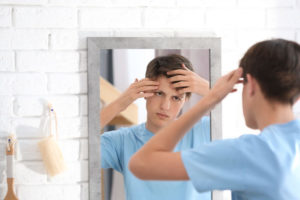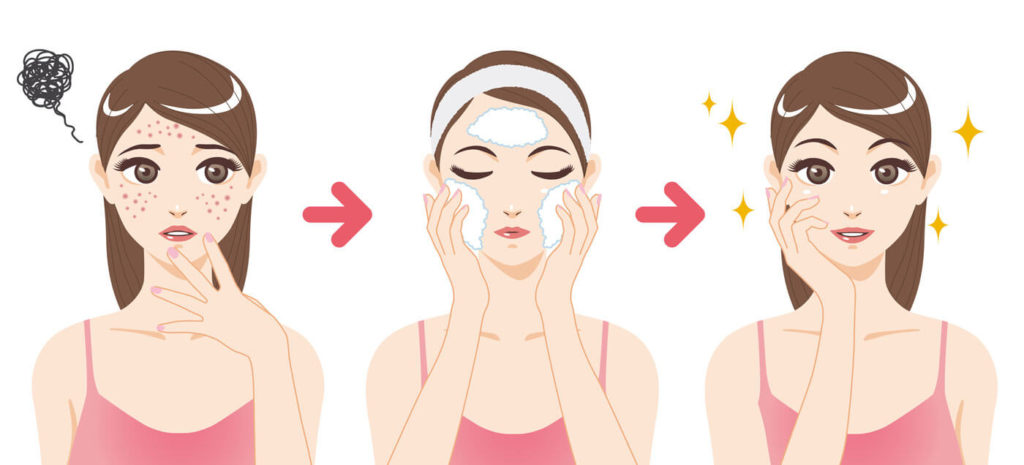The first step to treating acne is to understand the type of acne you have.
Just about every teen will find at least one blackhead or whitehead on his or her skin by age 17, and some teens will develop more severe acne, which can leave scarring. Teen acne comes in many shapes and sizes and normally forms on the face, neck, back, chest, and shoulders.

There a few types of acne such as:
Whiteheads: Show up in the form of white dots. They are created by pores filling with oil and then covered with skin. Often these can be treated with over the counter benzoyl peroxide.
Blackheads: Are pores that have been clogged with bacteria, dead skin cells, and oil. It is best to try a benzoyl peroxide gel. This treatment should be used about four to seven times a week. It is also recommended that the teen gently wash their face at least twice a day.
Papules, pustules or nodules: These are lesions that appear red and swollen. They are formed from tissue inflammation or infections of clogged follicles. Topical medications such as benzoyl peroxide or retinoid can help. However, an oral antibiotic or other prescription be needed.
Cysts: Are created underskin in the form of pimples that are often hard and filled with pus. An oral antibiotic or isotretinoin is often necessary to treat these types of lesions.

What causes teenage acne?
It is common for teens between the ages of 10 and 25 years old to suffer from acne. It is caused by sebum clogging pores. Hormones during puberty also play a large role in the development of acne. Under the influence of adolescent hormones, the glands increase their production of an oily substance called sebum that normally lubricates the skin. Sebum is a food source for bacteria that reside in the skin. As these bacteria proliferate, they attract white blood cells that can damage the follicle walls, forming debris and dead cells that result in pimples and sometimes pustules. Or the follicles may become plugged, forming blackheads or whiteheads.

Ways to treat teen acne at home:
- Keep all skin areas prone to acne very clean. Use soap and lots of water; pat areas dry; don’t rub the skin.
- Wash the skin at least twice a day.
- Avoid washing acne-prone areas with very hot or very cold water. Lukewarm water is best for not aggravating skin conditions.
- Don’t cover acne with bandages or tight-fitting clothing.
- Oral antibiotics or topical creams can also help get rid of acne.
- Don’t pick at your skin!!
- Avoid cosmetics, moisturizers, and other skincare products that contain oil. Instead, use oil-free products, they’ll help your skin breathe and limit clogged pores.
